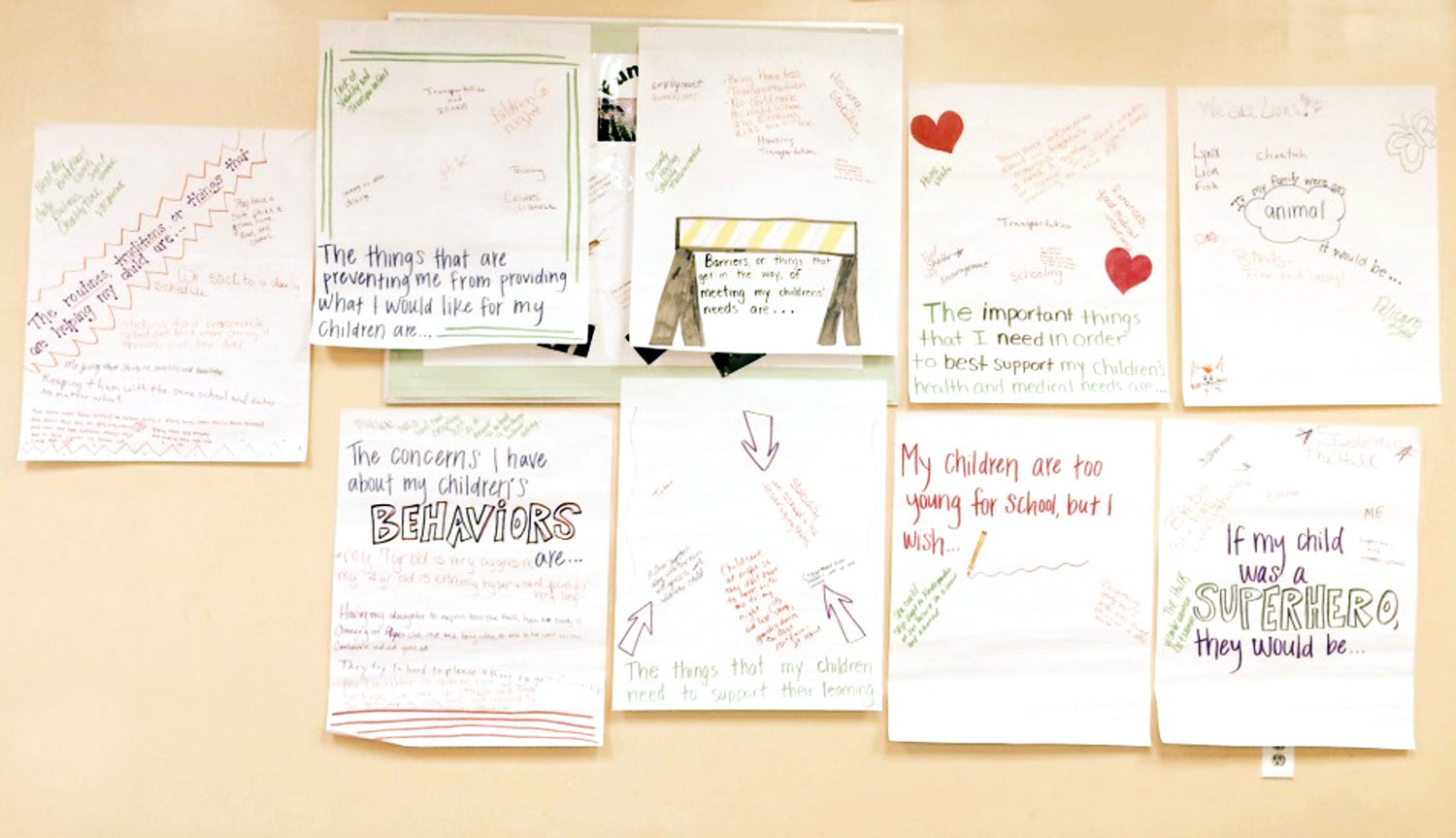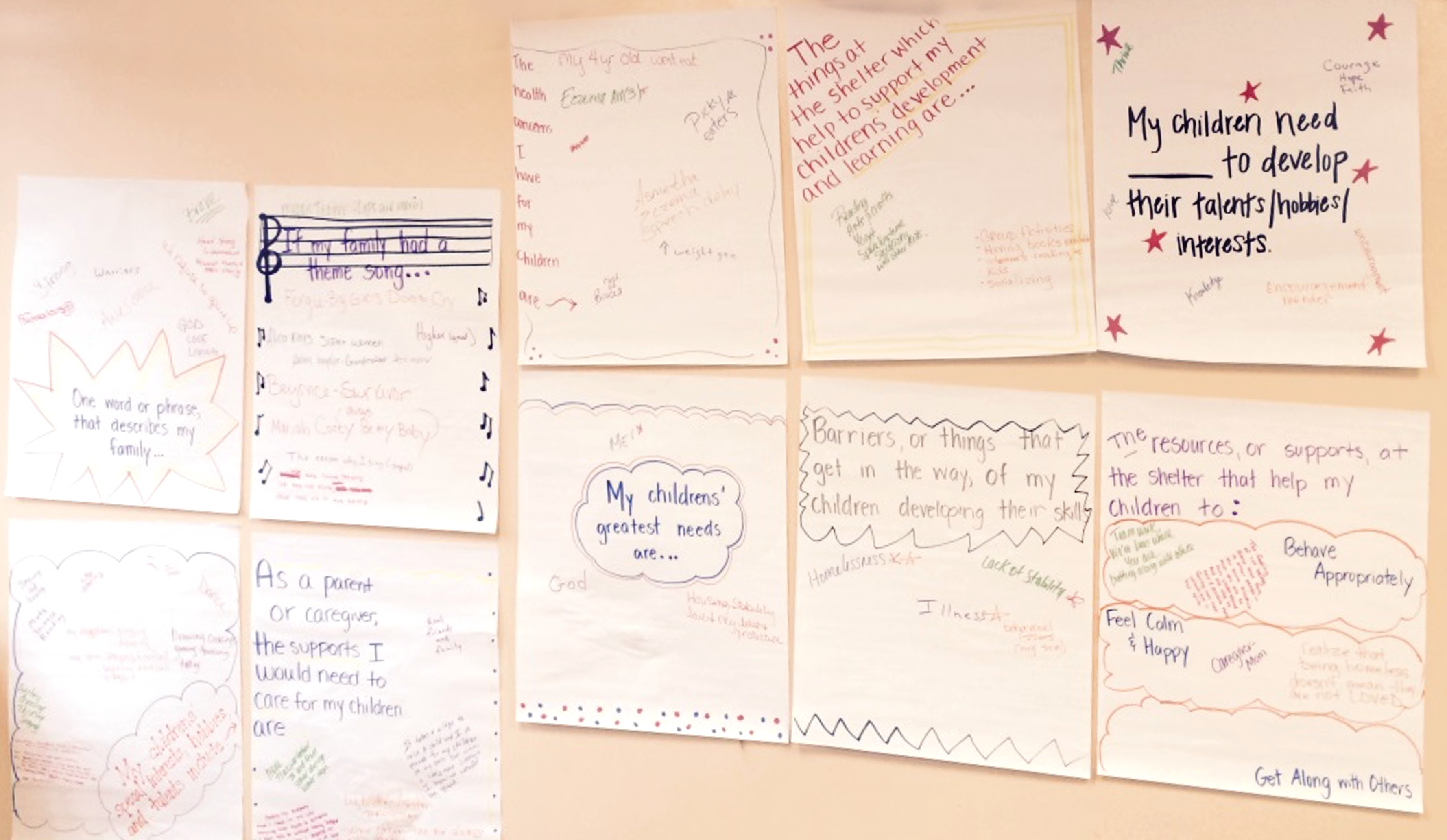Study Drives Real-World Change for Cincinnati Families Experiencing Homelessness
Research By: Pamela Williams-Arya, MD | Tanya Froehlich, MD, MS, FAAP
Post Date: April 10, 2022 | Publish Date: Oct. – Dec. 2021

“These families are in the driver’s seat and the Group-Level Assessment’s structured format enables them to determine action steps to affect programmatic, policy or community change.”
–Pamela Williams-Arya, MD
Homelessness has lasting effects on our nation’s children and previous studies have shown that it negatively impacts their health, behavior and development over time. However, there is limited knowledge about specific service priorities from families’ lived experience that are needed to prevent or address these adverse consequences.
A research group at Cincinnati Children’s went straight to the source to learn how they could affect change for these families and especially their children.
Using a focus group methodology called Group-Level Assessment (GLA), they gathered various perspectives from 53 parents who were living in four Cincinnati homeless shelters and helped to facilitate service prioritization and identification of action steps.
The recommendations from their study, published in Family & Community Health, were then translated into real-world action and led to a number of policy and practice enhancements in these shelters.
RESEARCH OUTCOMES DRIVEN BY THE PARTICIPANTS THEMSELVES
During five different GLA sessions, the research team undertook a community-based participatory research effort and asked participants to answer 20 open-ended prompts regarding their child’s medical, developmental, learning, social and behavioral needs.
Both the participants and research team then analyzed the data in real time using a multi-step process involving idea generation, reflection, synthesis and prioritization.
“A huge strength of this study is that the results are grounded in the participants’ lived experiences, in contrast to the typical qualitative research focus group approach wherein the researchers analyze the data afterwards in isolation from the participants,” says Pamela Williams-Arya, MD, Division of Developmental and Behavioral Pediatrics and the study’s lead investigator. “These families are in the driver’s seat and the GLA’s structured format enables them to determine action steps to affect programmatic, policy or community change.”
Using GLA methodology, the research team found that families residing in homeless shelters expressed similar needs around four themes: job and housing stability; education and skill development; emotional support; and improving shelter life.
Families ultimately prioritized these needs:
- Childcare services
- Accessible transportation to keep children in their school of origin
- Increased programming and activities for children to promote development and learning
- Mental health and behavioral support, particularly addressing the trauma that families experiencing homelessness have endured

A COORDINATED COMMUNITY TASK FORCE TO AFFECT CHANGE
A key partner in addressing these GLA-identified needs was Strategies to End Homelessness, which leads a coordinated community effort to end homelessness in Greater Cincinnati. The agency convened a “Solutions for Family Homelessness Children’s Task Force” in the fall of 2015, and since then, has made impressive strides.
One outcome that surprised local leadership was the profound negative impact that lack of childcare services had on parents’ job and housing searches.
“Without childcare, parents had to take their children to job and housing interviews, which obviously put them at a disadvantage,” Williams-Arya notes.
To support parents in their efforts to secure jobs and housing stability, the task force identified funding for childcare and a streamlined system for placing children in high-quality childcare settings that can be used by families at all regional family shelters. In the past year, one local shelter began providing childcare on-site. These new services have made it possible for parents to attend and focus on their job and housing interviews without having to bring their children.
Enhanced child development programming was also added at these local shelters. More staff were hired to coordinate services and activities for children, and a Play & Learn parenting support program was piloted.
Additionally, the task force partnered with local school districts to ensure that transportation is arranged more quickly in order for these children to stay in their home schools of origin.
Since the initial project, research team members have remained in active partnership with regional family shelters in trying to address the GLA-identified needs. Bethany House Services, which provides housing, education and assistance to homeless families in the Greater Cincinnati area, received training from the Cincinnati Leadership Education in Neurodevelopmental and related Disabilities (LEND) training program to enhance their skills when working with individuals who have experienced trauma. In 2020, their Seminar in Evidence-based Methods (SEBM) team provided two trauma-informed trainings for shelter staff, and a year later, they developed a trauma-informed practices toolkit as a staff resource. Williams-Arya and Froehlich are currently working on plans for future partnership projects with Bethany House.
“GLA provides a valid, lived experience way to uncover local needs and priorities and thus can be utilized in a wide range of settings,” says Tanya Froehlich, MD, MS, FAAP, director of Research in the Division of Developmental and Behavioral Pediatrics and one the study’s authors. “This research approach is also exciting because it can amplify diverse stakeholder voices, including those from historically marginalized groups, such as racial and ethnic minorities.”
ABOUT THIS STUDY
Co-authors from Cincinnati Children’s also included Lisa Vaughn, PhD, Division of Emergency Medicine, Nichole Nidey, PhD, Division of Biostatistics & Epidemiology, Molly Sawyer, MSEd, Division of Developmental & Behavioral Pediatrics, and Kayla Porter, BA, Cincinnati Children’s Charlotte R. Schmidlapp STEM Scholars Program participant.
| Original title: | Striving for Structure and Stability in Cincinnati's Family Homeless Shelters: A Community-Based Participatory Research Approach |
| Published in: | Family & Community Health |
| Publish date: | Oct. – Dec. 2021 |
Research By








